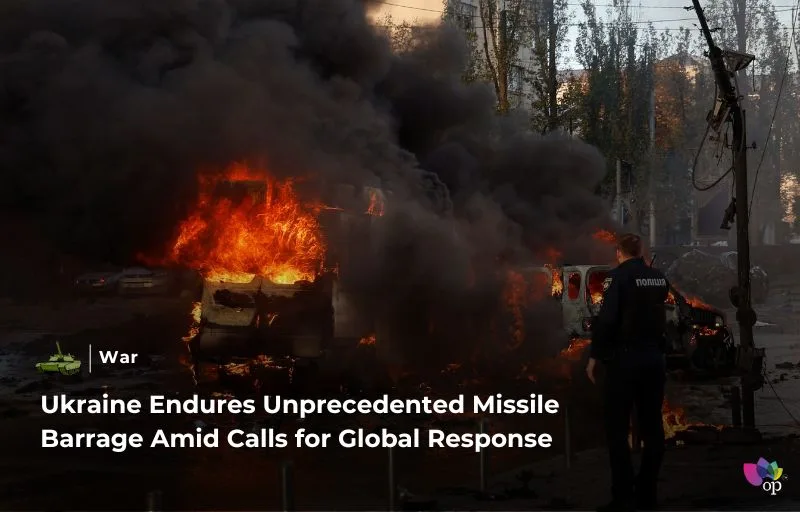Ukraine experienced one of the most severe aerial assaults since Russia’s invasion began nearly three years ago, as Russian forces launched a staggering 93 cruise and ballistic missiles and nearly 200 drones. Ukrainian President Volodymyr Zelenskyy, addressing the nation and international allies, confirmed that defensive systems intercepted 81 missiles, including 11 downed by F-16 fighter jets supplied by Western allies earlier this year.
The targets of this latest attack included critical energy infrastructure, transport networks, and other key facilities, significantly affecting the nation’s ability to sustain its military operations and civilian life. This campaign is widely perceived as part of Russia’s broader strategy to cripple Ukraine’s power grid during winter, a tactic aimed at demoralizing the population and straining national resources.
Retaliatory Motives and Strategic Calculations
The Russian Defense Ministry characterized the strike as a response to Ukraine’s use of U.S.-provided Army Tactical Missile Systems (ATACMs) in a recent attack on a Russian air base. Moscow claimed its operation targeted critical Ukrainian facilities essential for the defense industry. The narrative underscores Russia’s intent to maintain strategic dominance while retaliating for perceived escalations, such as the use of advanced Western weaponry.
International Dynamics: The Trump Factor
The international response to the ongoing conflict may face a pivotal shift as U.S. President-elect Donald Trump prepares to assume office. Trump has expressed intentions to end the war and voiced concerns about Ukraine using U.S.-supplied weapons against Russian targets. This stance aligns with Kremlin narratives, with Russian officials praising Trump’s viewpoint as conducive to de-escalation. However, critics argue that a reduction in U.S. military aid could weaken Ukraine’s defense capabilities and embolden Russian aggression.
Zelenskyy’s Plea for a Unified Global Reaction
Zelenskyy’s statements following the attack highlighted his call for a robust global response to Russian aggression. Stressing the need for international solidarity, he argued that only decisive action could deter Moscow’s strategy of terrorizing civilian populations. The Ukrainian leader’s appeal emphasized a critical juncture for Western nations to reaffirm their support, particularly as the geopolitical landscape evolves with the incoming U.S. administration.
Analysis: Escalation Risks and Strategic Implications
- Winter as a Battlefield: Russia’s focus on Ukraine’s energy infrastructure signals a strategic attempt to exploit seasonal vulnerabilities. Prolonged attacks on utilities could exacerbate humanitarian crises, creating additional pressures on Kyiv and its Western allies.
- Western Military Aid in Question: The potential shift in U.S. policy under Trump’s leadership introduces uncertainty. Any reduction in support might weaken Ukraine’s resistance and signal diminished Western resolve, potentially altering the balance of power in the conflict.
- Global Implications: The attack underscores broader challenges in maintaining international unity against Russian aggression. The conflict’s outcomes will likely influence global norms around territorial integrity and the use of force.
- Tactical Gains vs. Strategic Costs: While Russia’s retaliatory strikes might achieve immediate military objectives, they risk further isolating Moscow globally and galvanizing Western countries to enhance their support for Ukraine.
Conclusion: A Pivotal Moment for Global Policy
Ukraine’s resilience in defending against one of the largest aerial bombardments highlights its determination to withstand Russian aggression. However, the international community’s response will be crucial in shaping the conflict’s trajectory. As geopolitical uncertainties loom, particularly with Trump’s impending presidency, Ukraine’s struggle represents a test of global resolve against authoritarianism and aggression.
References



Comments 1